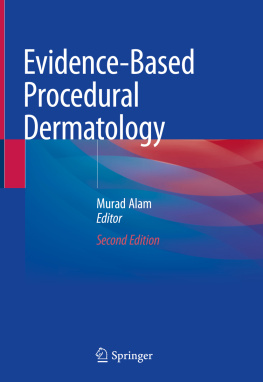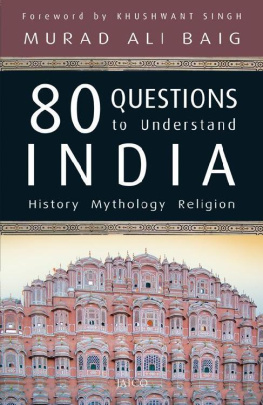Khurram Murad - A Righteous Heart: The Axis of One’s Deeds
Here you can read online Khurram Murad - A Righteous Heart: The Axis of One’s Deeds full text of the book (entire story) in english for free. Download pdf and epub, get meaning, cover and reviews about this ebook. year: 2018, genre: Religion. Description of the work, (preface) as well as reviews are available. Best literature library LitArk.com created for fans of good reading and offers a wide selection of genres:
Romance novel
Science fiction
Adventure
Detective
Science
History
Home and family
Prose
Art
Politics
Computer
Non-fiction
Religion
Business
Children
Humor
Choose a favorite category and find really read worthwhile books. Enjoy immersion in the world of imagination, feel the emotions of the characters or learn something new for yourself, make an fascinating discovery.
- Book:A Righteous Heart: The Axis of One’s Deeds
- Author:
- Genre:
- Year:2018
- Rating:4 / 5
- Favourites:Add to favourites
- Your mark:
- 80
- 1
- 2
- 3
- 4
- 5
A Righteous Heart: The Axis of One’s Deeds: summary, description and annotation
We offer to read an annotation, description, summary or preface (depends on what the author of the book "A Righteous Heart: The Axis of One’s Deeds" wrote himself). If you haven't found the necessary information about the book — write in the comments, we will try to find it.
A Righteous Heart: The Axis of One’s Deeds — read online for free the complete book (whole text) full work
Below is the text of the book, divided by pages. System saving the place of the last page read, allows you to conveniently read the book "A Righteous Heart: The Axis of One’s Deeds" online for free, without having to search again every time where you left off. Put a bookmark, and you can go to the page where you finished reading at any time.
Font size:
Interval:
Bookmark:
A Righteous Heart:
The Axis of Ones Deeds
:
(Dil ki zindag: a`ml k madr)
Khurram Murad
Translated and edited by:
Kazi Zulkader Siddiqui
2018
Copyright 2018 by Kazi Zulkader Siddiqui
All rights reserved.
This book may not be reproduced, in whole or part, in any form or by any means electronic or mechanical, photocopying, recording, scanning, or otherwise, without the prior written permission of Kazi Zulkader Siddiqui.
Translated and Published by:
Kazi Zulkader Siddiqui
Distributed by:
KZS Books
44475 Chamberlain Ter, Unit 205, Ashburn, VA 20147, USA
Web: www.zulkader.com
Contents
Examining the depths of our personality and character, this essay analyses the extremely important role played by the "heart" in guiding one's intellect, comprehension, emotions, wisdom, perception, thought, responsibility deeds and actions towards righteousness as expounded through the teachings of our noble Prophet Muammad ( ) .
Khurram Jah Murad (1932-1996) wrote an essay in Urdu titled Dil ki zindag: a`ml k madr before his death, but it was not available in the public domain until it was published posthumously in 2005. The contents were accessible only to the Urdu speaking audience. Therefore, we took it upon ourselves to bring the wisdom of these deep thoughts to a much wider readership through this translation along with explanation of various terms and concepts he used.
The essay is centered on the Arabic word qalb or dil in Urdu. The closest literal translation of the word in English is heart. Khurram Murad has very beautifully brought out the different meanings, connotations and implications of qalb as understood through the Qurn and adth . Through his analysis of a very famous adth of our noble Prophet ( ) on all (lawful), arm (forbidden) and doubtful matters, he has demonstrated in an eloquent manner that the seat of one's personality, faith, intellect, emotions and wisdom is enshrined within us by having a sound heart.
Allah ( subnahu wa ta`l) created man in the "best of molds and He then debased him to be the "lowest of the low" except for those who believe and do good deeds . The essence of this faith and deeds is enshrined in this very same qalb which is the epicenter of one's faith. This is the inner conscience of man combined with a realization that indeed Allah is all-encompassing and is a part of every moment of our lives. It is this sense of realization, a distinction between the lawful and the unlawful, and an acceptance of His Presence at every juncture of one's life that elevates man to become the best of His creation.
One of the key elements of our demise today is this move away from the center of our conscience which lies in the qalb . As we race solely towards worldly benefits, we Muslims at large have forsaken the essential principles of ethics and human values that emanate from this inner self. The core of the Qurnic values have been forgotten from our lives. While our tongues seem to ritualistically repeat the holy words liturgically, our actions are no longer dictated by the qalb . The fira (instincts and laws of nature endowed to us by Allah) with which we were born is lost in the maze of worldly glitter.
Reading Khurram Murad's analysis of the concept of qalb in Qurn and adth , it is quite apparent that the English word heart is thoroughly inadequate to explain the various meanings of qalb that are essential for the development of the human personality. Therefore, we have chosen to retain the Arabic word qalb throughout the translation so that its meanings are not diluted at any point.
Many other Arabic and Urdu words in the text have also been retained in order to display the richness and depth of the meaning, and to familiarize the reader with the technical terms in Muslim thought and terminology. For ease of the reader, we have added a glossary of terms at the end of this translation. We have however preferred to use the term religion for dn for the sake of simplicity, although dn encompasses all aspects of life.
The title of the original essay in Urdu is Dil ki zindag: a`ml k madr . A literal translation can be confusing and would probably read as Life of the Heart: The Orbit of Deeds, which does not convey the intent or the meaning of the message that the author is trying to convey. Therefore, we have taken the liberty to translate the title as A Righteous Heart: The Axis of Ones Deeds which is closer in meaning to the context and conveys the essence of this essay in the English idiom, and to give a clearer understanding to the reader on what to expect in the text. The heart or qalb is the epicenter of all of mans goodness or misdeeds. It is the fulcrum of the essence of man, regulating his inner conscience and the goodness of his personality to bring out the best in him. Such a man is righteous, and so is his qalb .
I am hopeful that the reader will be able to fathom the depths of meaning of qalb and how it becomes the source of a righteous life. On the contrary, a man whose conscience betrays him would destroy the real nature of his qalb his inner self which can lead him astray and on to a path of self-destruction.
It was quite a challenge for me to translate this book. Khurram Murad's expression in Urdu in many cases cannot be translated literally. Therefore, I have had to take several liberties in using equivalent and similar English language expressions and idiom to convey the meanings and intent of the original work. At times, a purely literal translation could have led us to understand the exact opposite of the real text and its intent. I have also taken the liberty to add a few sentences within the text and through footnotes to expound on some of the meanings and the background of these terms and concepts.
This translation would not have been possible had my sister-in-law Fatima Abdur Rahman not initiated this work. She did the first initial translation. Her work must be acknowledged, and full credit must be given to her. In addition, the encouragement I got from her husband Syed Waliullah Husaini and daughter Batool was a great source of support in completing this translation.
I am also thankful to Dr. Hasan Suhaib Murad (son of Khurram Murad), Chairman, ILM Trust, Lahore for his permission to translate and publish this book.
Lastly, it would be out of place if I were not to acknowledge the lifetime contribution of Khurram Jah Murad. He was an intellectual, a scholar of great repute, an orator and a preacher. He spent his entire life to spread knowledge about Islam and to promote true scholarship. Along with Prof. Khurshid Ahmad, he was one of the founders of the Islamic Foundation, UK, and he remained its Director General to the end of his life. The Foundation has made a tremendous contribution towards research, education and publication of works in the field of Islamic Studies. Khurram Murad left an indelible mark on this institution and on Islamic scholarship in the West. This short work demonstrates the depth of his thought and contribution.
Kazi Zulkader Siddiqui
February 2018
A Righteous Heart:
The Axis of Ones Deeds
:
Arabic text of the adth as recorded in Sahh Bukhr :
:
`mir al-Sha`b reported that: an-Nu`mn ibn Bashr ( may Allh be pleased with him ) said, I heard the Messenger of Allh ( ) say :
The all (lawful) is clear, and the arm (forbidden) is clear, and between the two of them are doubtful matters about which many people do not know. So, he who avoids doubtful matters has sought to clear himself in regard to his religion and his honor, but he who gets involved into doubtful matters [then] falls into the unlawful, like the shepherd who pastures around a private land, just about to enter and graze within. Undoubtedly, every sovereign has private property, and indeed, the private property of Allh is His prohibited matters. Undoubtedly, within the jasad (body) is a morsel of flesh which, when it is good (alaa), the whole body is good (alaa); but when it is corrupt, the whole jasad (body) is corrupt. Indeed, it is the qalb (heart).
Font size:
Interval:
Bookmark:
Similar books «A Righteous Heart: The Axis of One’s Deeds»
Look at similar books to A Righteous Heart: The Axis of One’s Deeds. We have selected literature similar in name and meaning in the hope of providing readers with more options to find new, interesting, not yet read works.
Discussion, reviews of the book A Righteous Heart: The Axis of One’s Deeds and just readers' own opinions. Leave your comments, write what you think about the work, its meaning or the main characters. Specify what exactly you liked and what you didn't like, and why you think so.

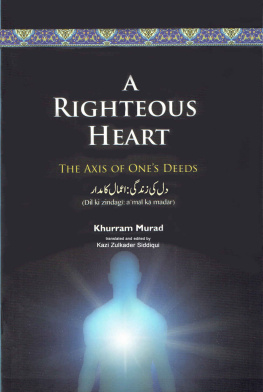
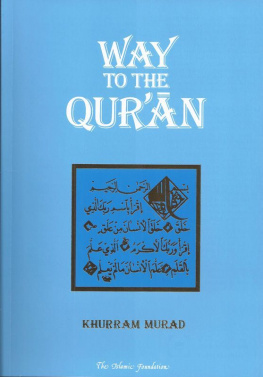
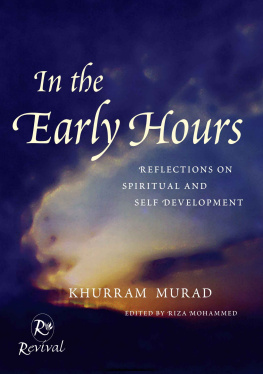
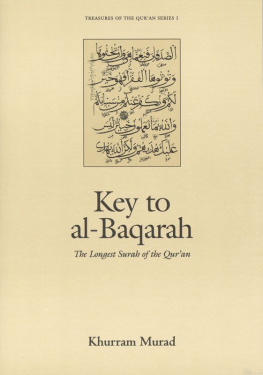
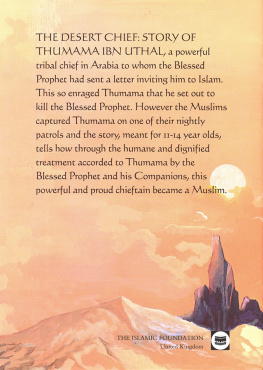

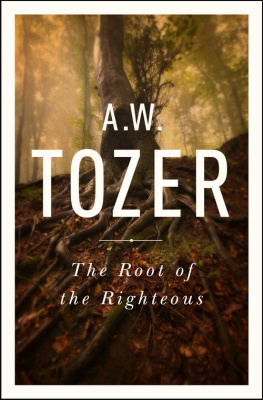
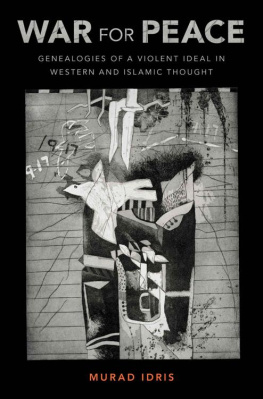
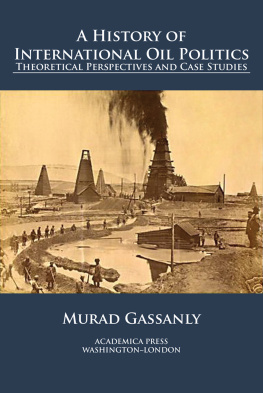

![Baker - The heart is a shifting sea [eBook - Axis 360]: love and marriage in Mumbai](/uploads/posts/book/180003/thumbs/baker-the-heart-is-a-shifting-sea-ebook-axis.jpg)
